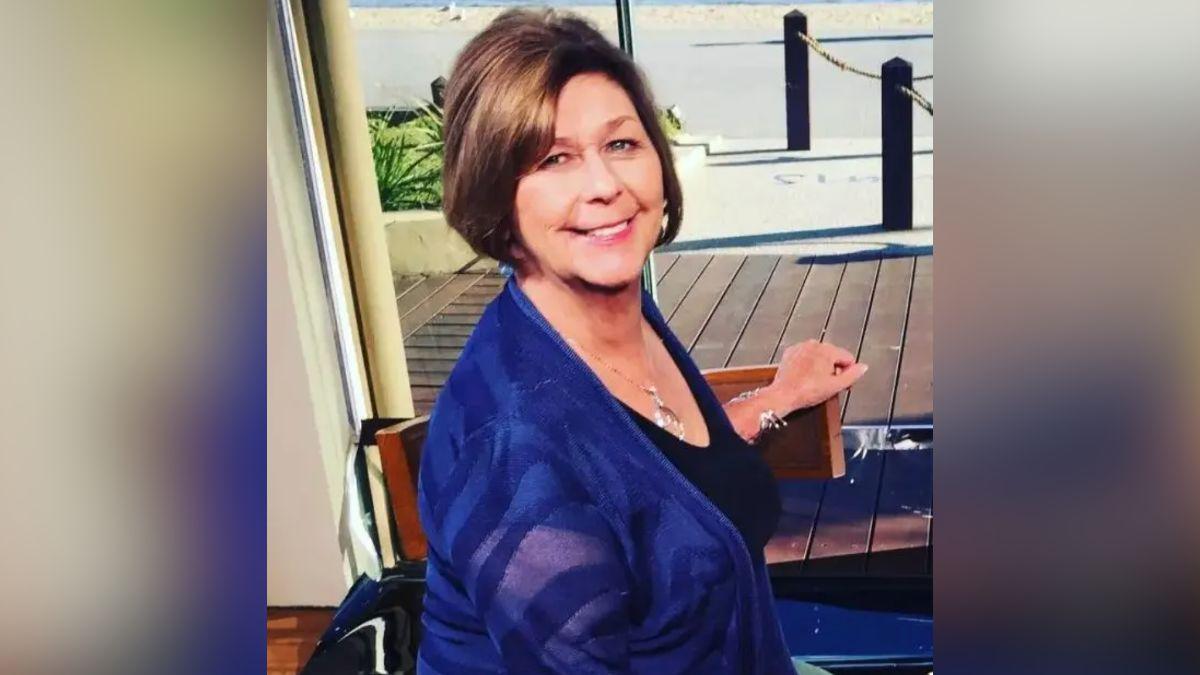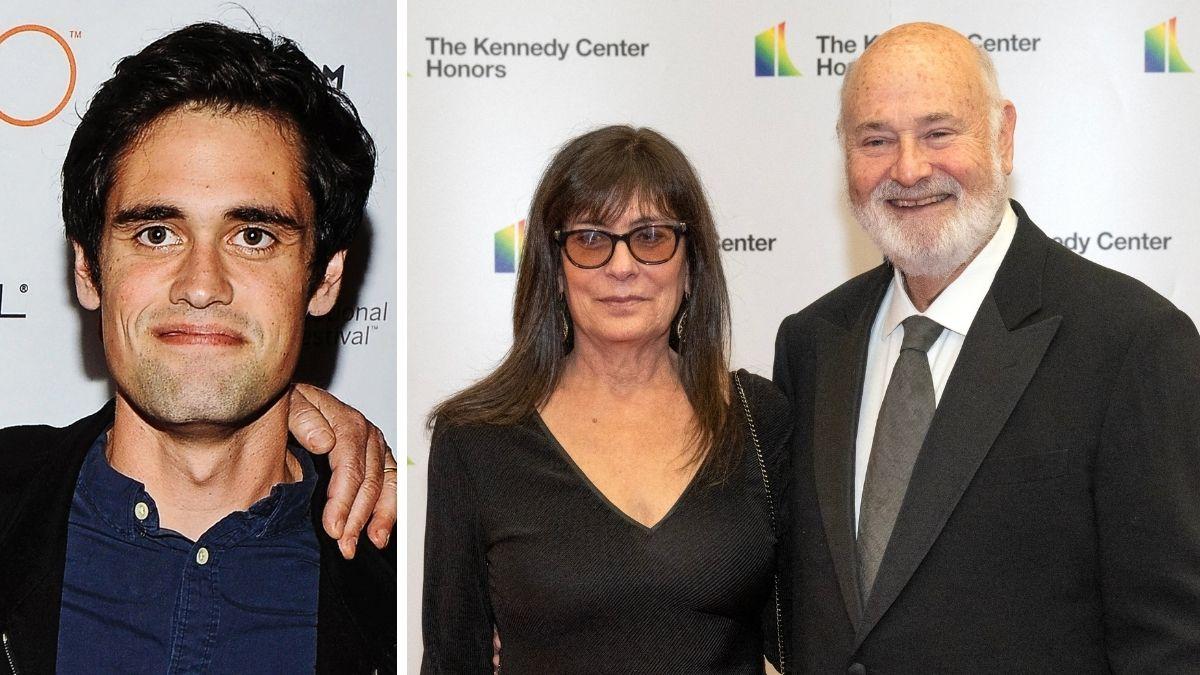Scientology, Self-Help, Sex & Psychological Games: How Master Manipulator Charles Manson Built His Killer Cult
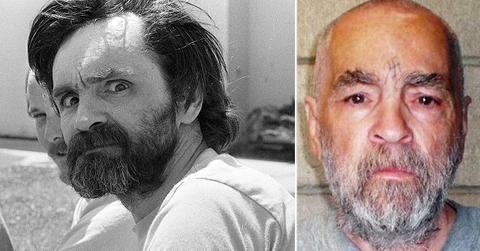
April 12 2021, Published 8:18 p.m. ET
In March 1971, Charles Manson and members of his “Family” cult were convicted of the brutal Tate-LaBianca murders that left seven people, including the actress Sharon Tate, butchered in their Los Angeles homes. The trial had made Manson the most notorious killer in America but it had also exposed the terrifying grip he had on the cult of young men and women he had groomed and who were ready to kill – or die – for him.
Now, in the book The Last Charles Manson Tapes: Evil Lives Beyond the Grave authors Dylan Howard and Andy Tillett lay bare just how Manson built his killer cult based on a unique blend of psychology, self-help, religious teachings, and prison smarts which he instilled in his members who gave absolute devotion to their leader.
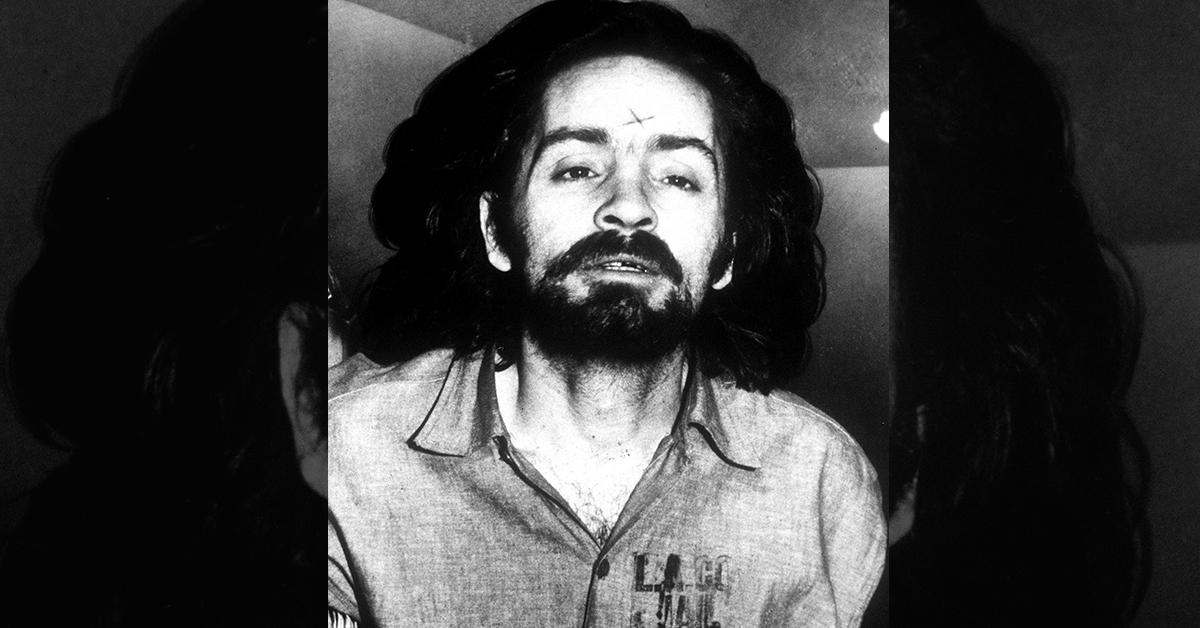
Charles Manson c.1970's
“Charlie Manson was a con man and a sponge,” the authors write. “Throughout his life, he sucked up a variety of influences that had been designed to exert power over people. Growing up, he had gone to Christian services, although he had responded to little in them save for the music. In prison, he had been exposed to Scientology and Dale Carnegie’s How to Win Friends & Influence People. On the opposite end of the self-improvement spectrum, he constantly listened to pimps’ highly embellished stories about keeping stables of women under control."
“Everything Charlie took in, he retained. It coagulated into a toxic stew of manipulative techniques he could draw from, depending on the circumstances or his target," the book states.
Manson had first been exposed to Dale Carnegie’s business bible How to Win Friends and Influence People whilst incarcerated in the Terminal Island facility in San Pedro, California as a 22-year-old in the late 1950s.
He immediately seized upon its mix of psychological techniques and persuasive tricks as a means of asserting control over people, and just a few years later, while locked up in another prison at McNeil Island, Washington, he discovered two more crucial philosophies that would later aid his cult recruitment.
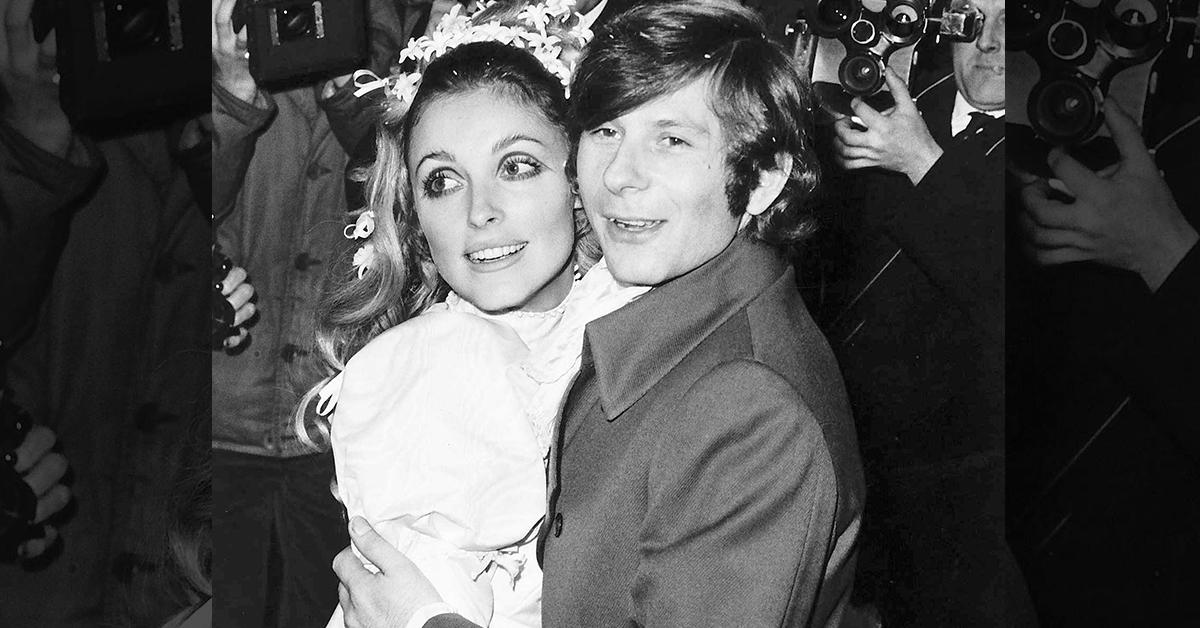
Sharon Tate and Roman Polanski in 1969.
The first was the science fiction novel Stranger in a Strange Land by Robert Heinlein. As Howard and Tillett explain, "The book also served as a touchstone for unfettered sexuality and communal living, as well as introducing the ideas that these behaviors did not have to be considered sinful if done under the auspices of a church. And that church, just as Christianity had been, could easily consist of one leader and a few followers. More than that, the book illustrated how sexuality could be used as a recruitment tool for such a church."
The second was a rudimentary course in Scientology.
“Scientology had been invented by science fiction writer L. Ron Hubbard, who set out to mold himself into an all-encompassing figurehead and leader who was to unquestioningly be obeyed at all times—traits Manson would no doubt have admired,” say the authors. "Adherents of Scientology emerge ‘clear’ and assert they are able to see the world as it really is, free of influences that may cloud their ability to analyze."
“Manson would eventually claim to be ‘clear.’ While he had listed Scientology as something, he was exploring in one of his mid-incarceration reviews, by his release in 1967 he was no longer expressing an interest in it. Since Scientology requires participants to invest money in order to advance, Manson would have felt any money he or anyone else had to invest in their spiritual well-being would be better off in his own pocket.”
Instead, following his release, Manson set about using the principles of Scientology to craft his own means of controlling his acolytes. He set all the Family members to work: cooking, cleaning, sewing, and maintaining cars, knowing that productive work would give them a stronger sense of self-worth—a sensation within them he had created. And if they wanted more, they had to stay with him.
As he later explained to Rolling Stone magazine, that sensation soon became addictive for his followers. "Pretty soon I’d be sitting on the porch, and I’d think, ‘I’ll go and do this or that,’” he said. “And one of the girls would say, ‘No, let me.'"
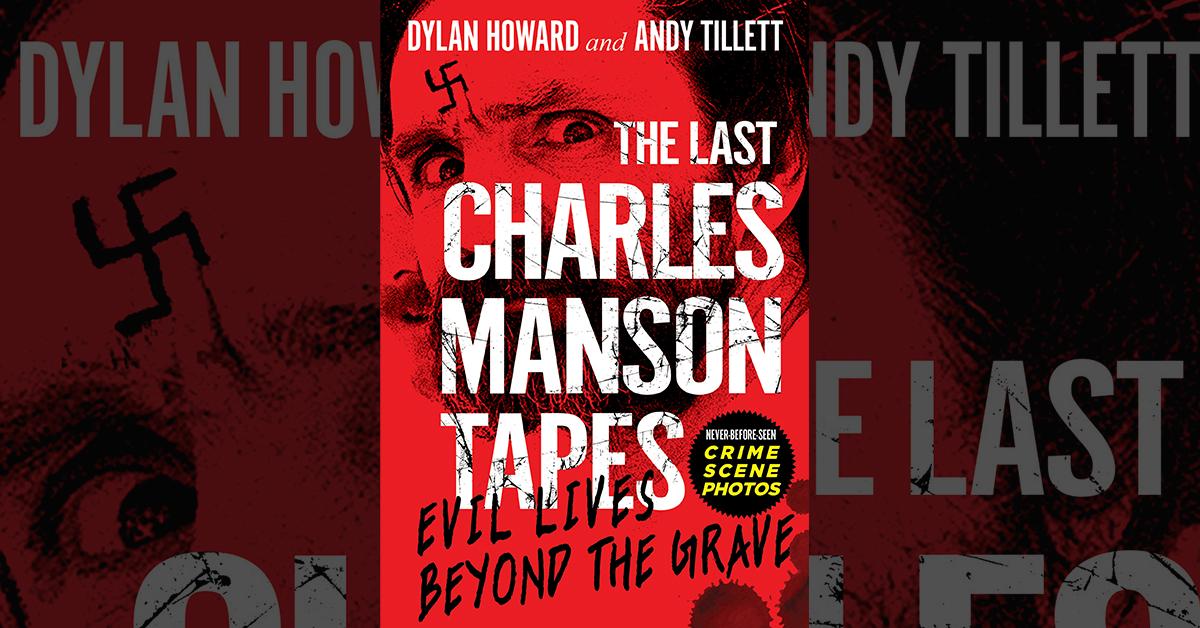
The Last Charles Manson Tapes: Evil Lives Beyond the Grave
“In the end, the girls would be just dying to do something for me. I’d ask one of them to make a shirt for me and she would be thrilled because she could do something for me. They’ll work twenty-four hours a day if you give them something to do.”
As Howard and Tillett uncover, Charles Manson also stripped his followers of their personality by removing any idea of property or possessions. "There was a communal clothing pile,” they write. “This was another idea geared toward breaking down individuality. If there was no ownership, there would be no jealousy. Anyone who liked a specific dress would have only to wait a day or two before having a chance to wear it."
“Even toothbrushes were considered communal property. Need one? Take one… a personal, private toothbrush was a selfish indulgence.”
This removal of individuality was reinforced through “games” the Family would play, in which Manson would get members to mirror his actions, placing their palms against his and tracking his motions, or making faces or gestures and expecting the group to mimic him.
“It was all a game, Family members thought,” explains Howard and Tillett. “Except it was not. The subtle message behind Manson’s actions was, ‘I am you, and you are me. You follow me. You do as I do.’ Or, as [Family member] Susan Atkins would later say, ‘I never questioned what Charlie said. I just did it.’”
As well as his fairly sophisticated psychological techniques, the authors also point out that Manson was not above using tricks he had learned from the pimps he had consorted with in jail. Men were lured into his fold with the promise of free, limitless sex with female Family members – and everyone was kept docile and open to suggestion through the liberal use of psychedelic drugs.

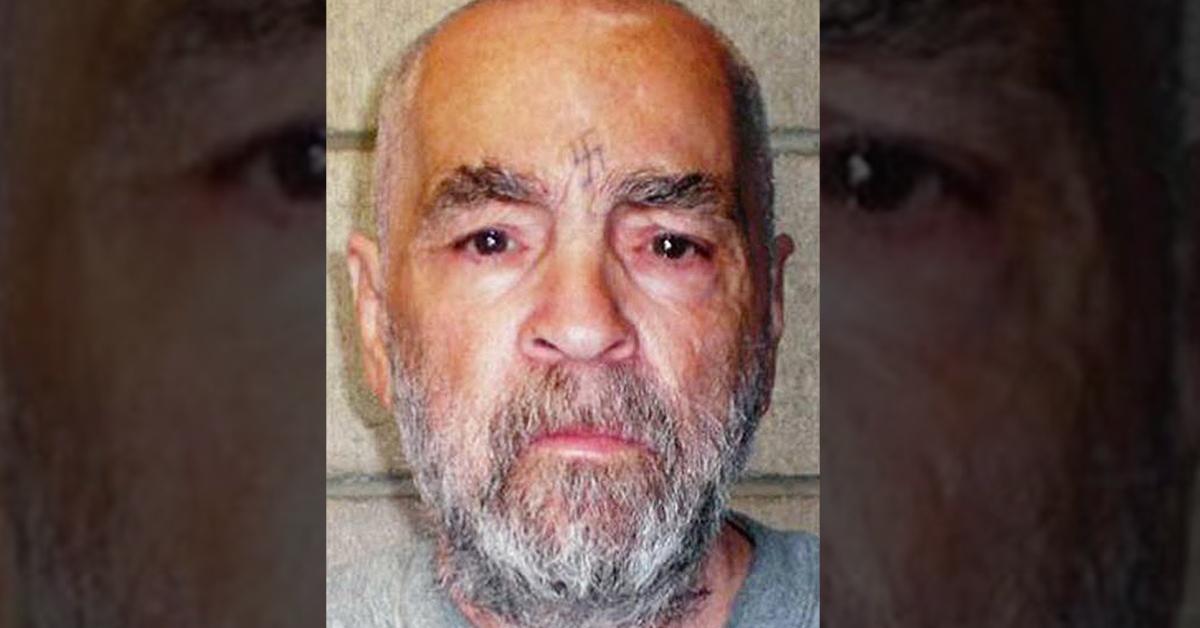
Charles Manson's 2009 mug shot
"Drugs offered another means of control, dulling the abilities of his followers to think for themselves,” writes Howard and Tillett. “As [Family member] Tex Watson, the sole male to participate in the Tate/LaBianca murders would later write, ‘The drugs we all took together and the lack of sleep...made us extremely open to suggestions, and the force of a stronger personality.’”
Manson would also reinforce his Messiah-like status by handing around the day’s drugs in the manner of a priest delivering the Eucharist.
This combination of psychological manipulation learned through the teachings of Dale Carnegie and L. Ron Hubbard, the stripping of personal possessions and anything that might reinforce individuality, as well as the lure of endless sex and drugs, created a unique – and uniquely dangerous – atmosphere inside Manson’s cult. Devoid of personality, unable to think for themselves, and convinced that their leader was always in the right, by August 1969 his Family would do anything he asked them to… with horrific consequences.
